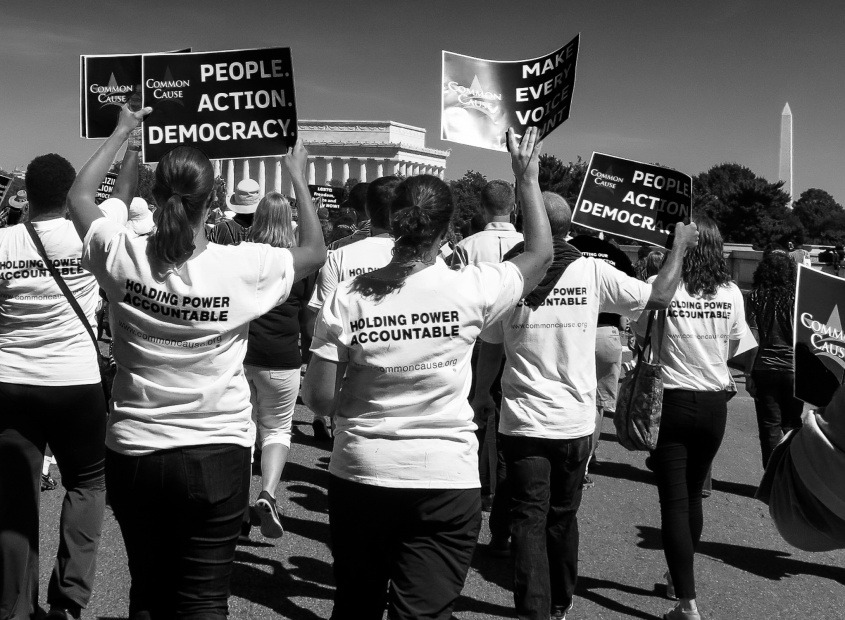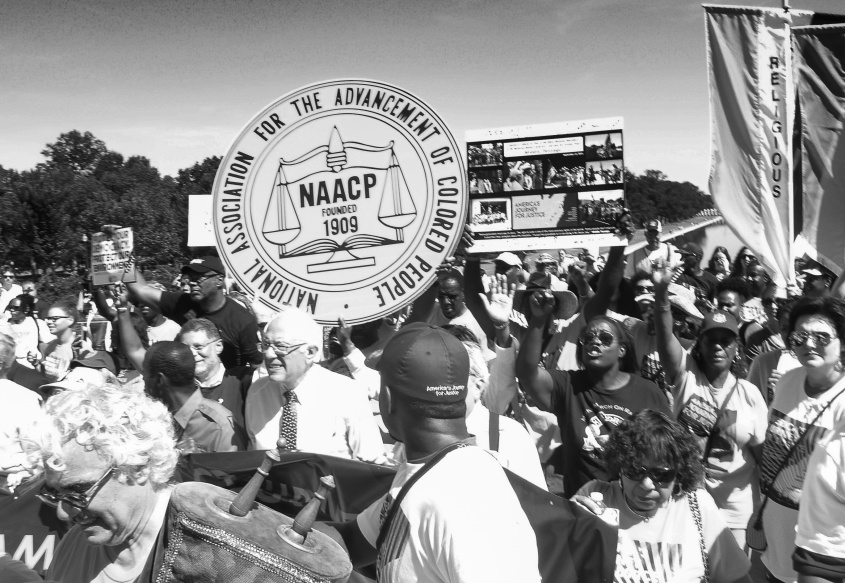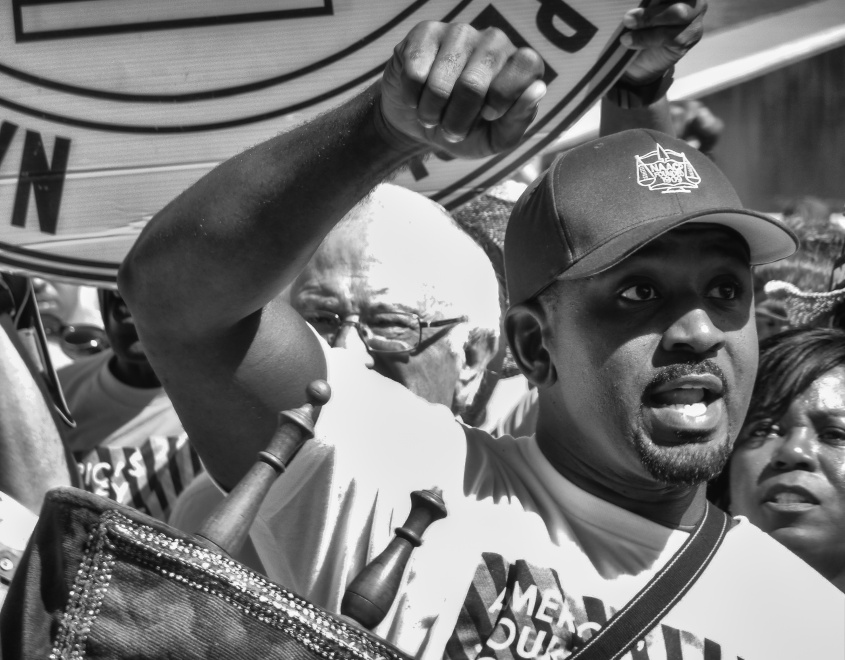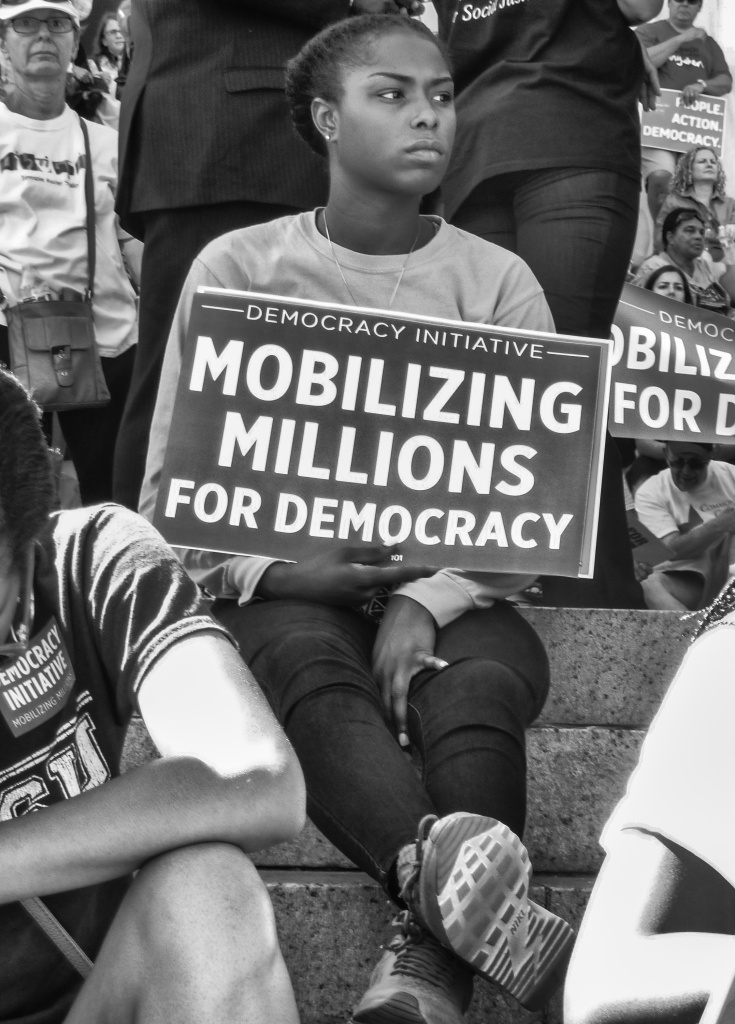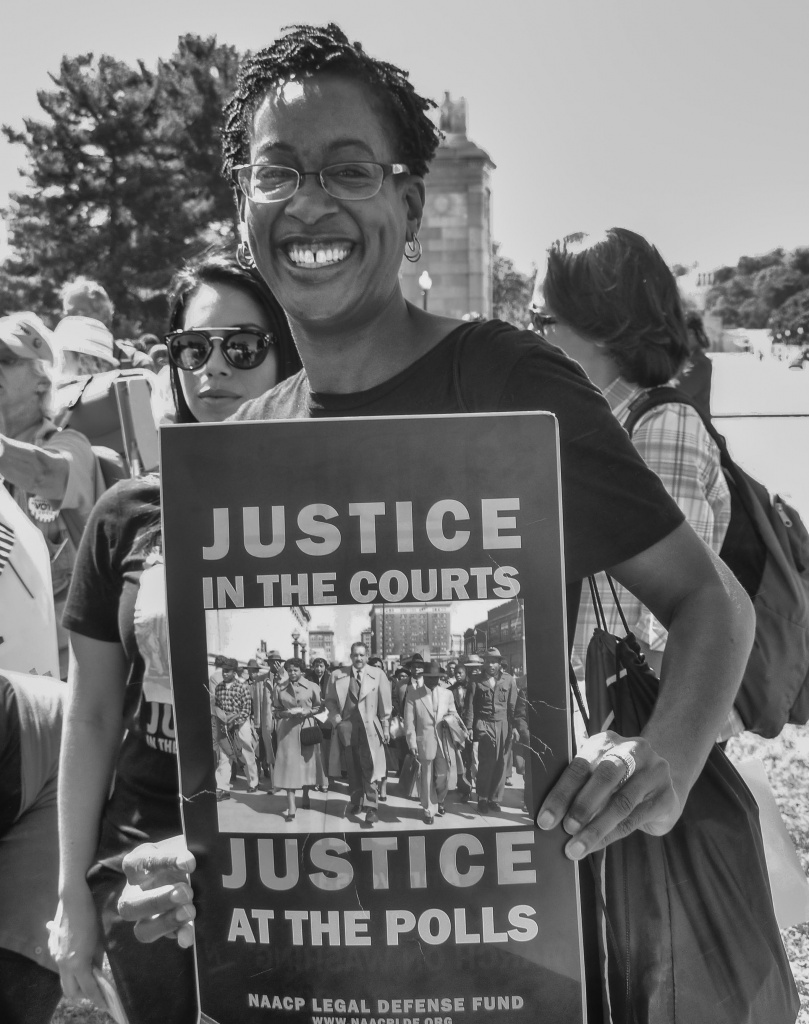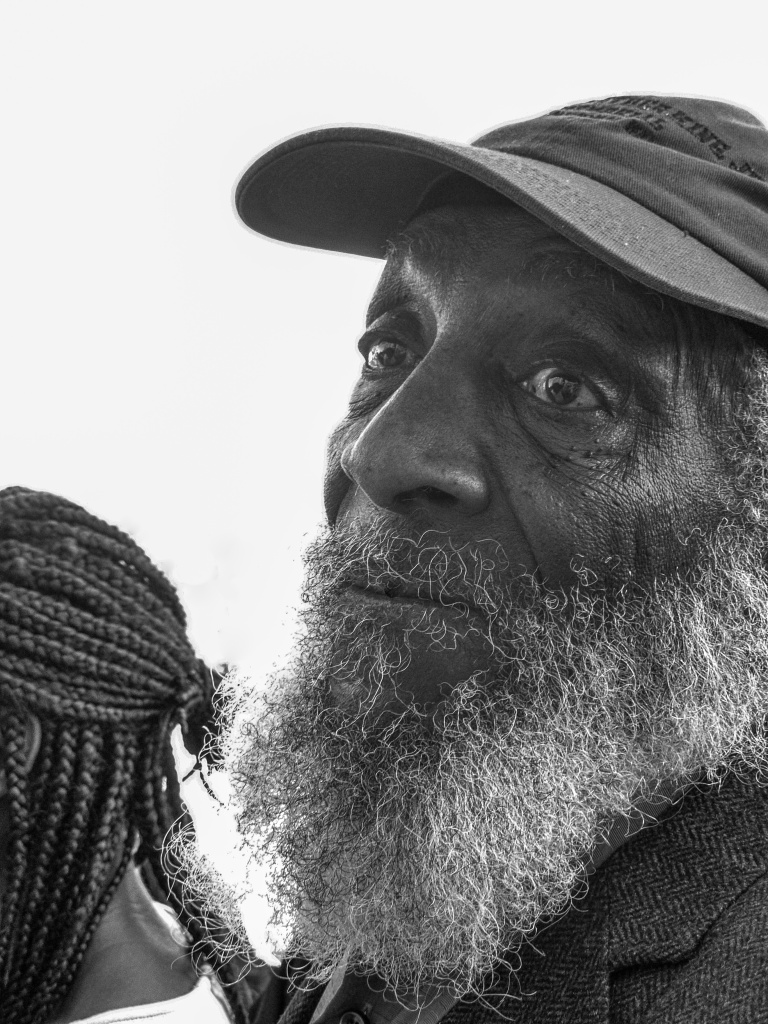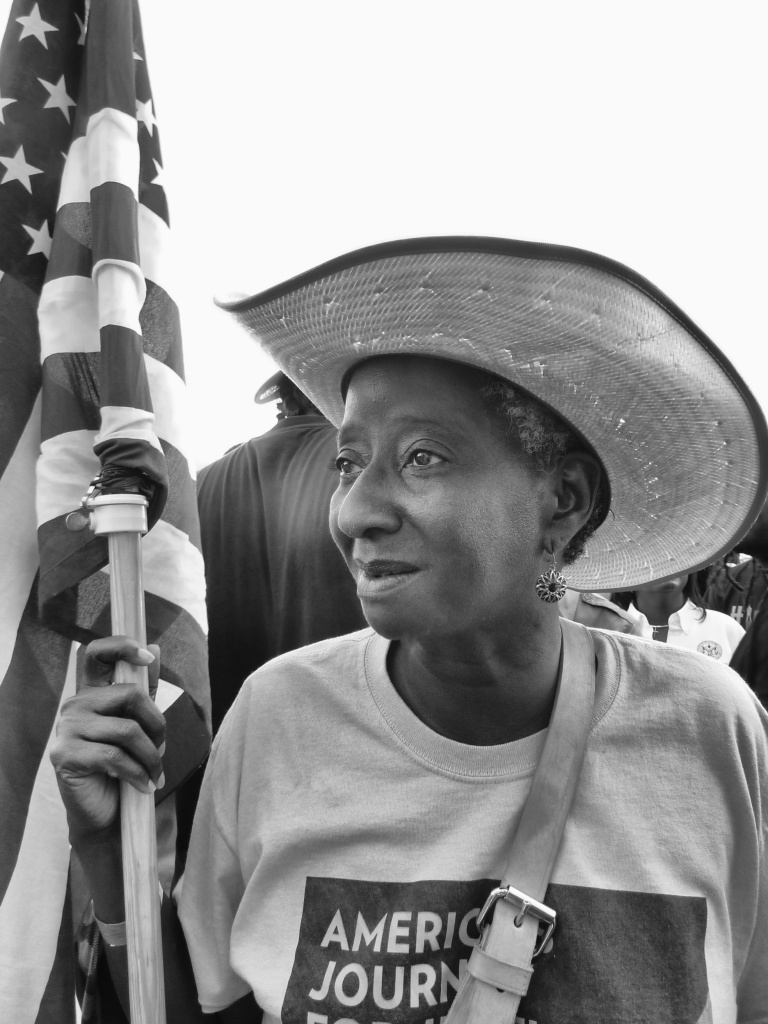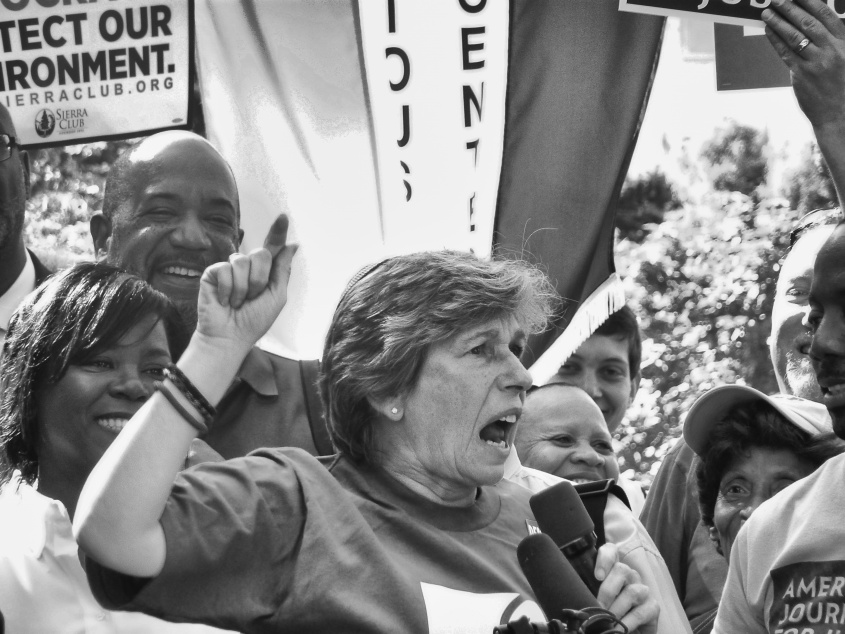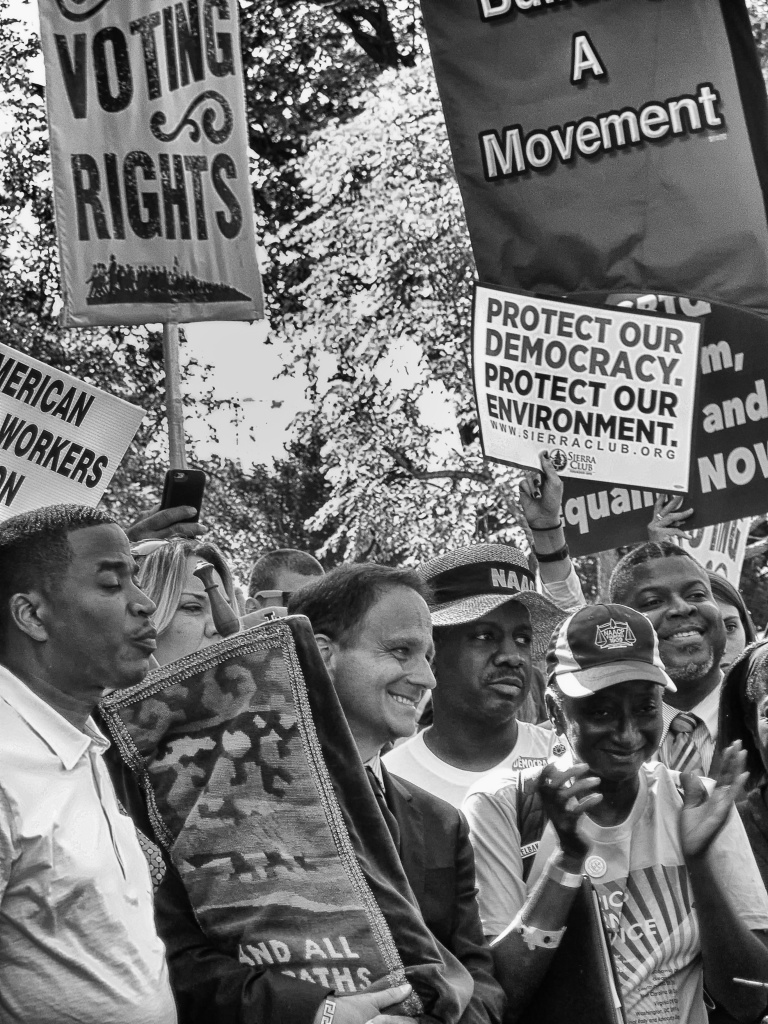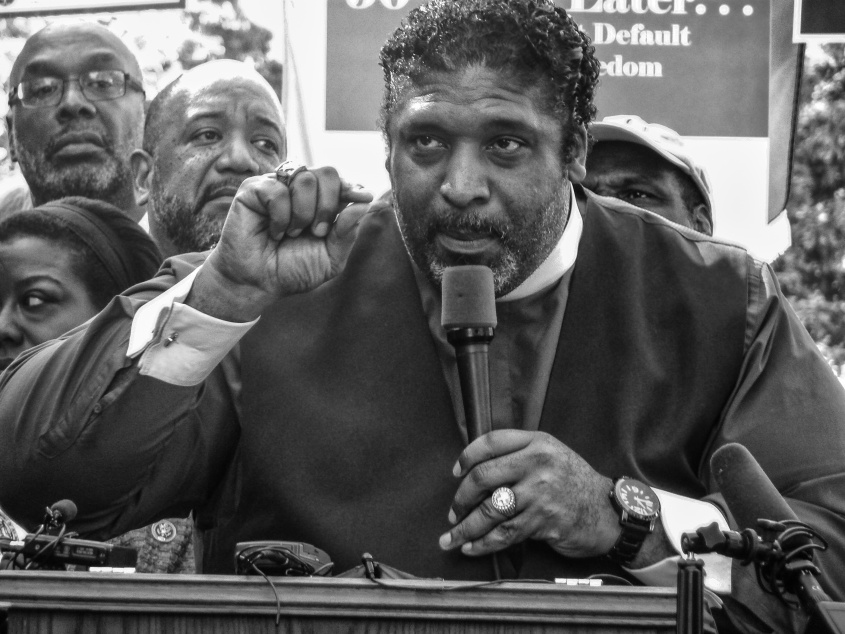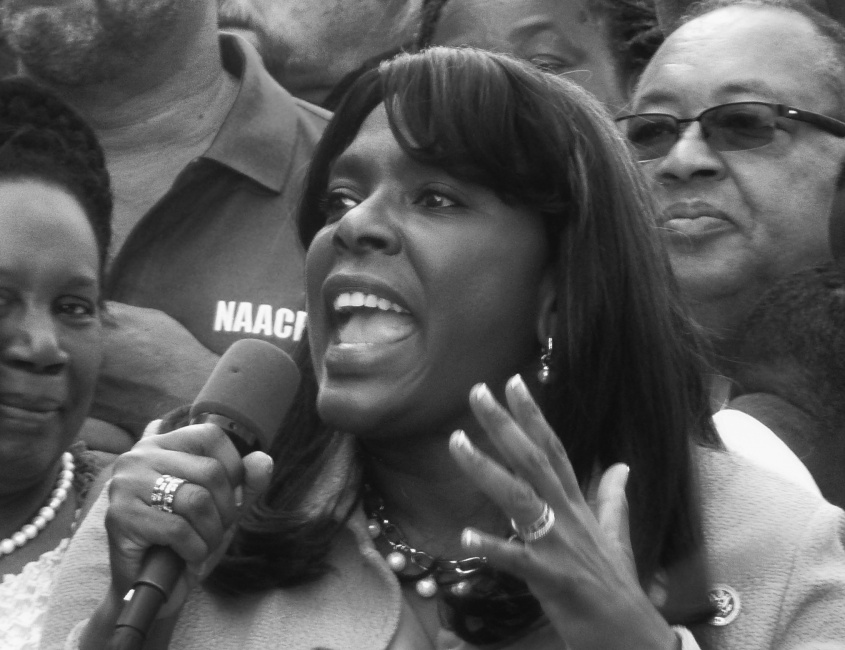
America's Journey For Justice
As part of the Commemoration of the Voting Rights Act, on August 1, 2015, the NAACP and its allies organized a march from Selma to Washington D.C. It was called America’s Journey for Justice. The march took over 40 days and covered 1,000 miles, ending at the Lincoln Memorial. The Journey was part of the struggle for voting rights that has been ongoing since the founding of the nation. At first, the right to vote was only for White, male, property owners. Then White-adult men. Later Black men. Then women, but without protections to assure women of color could vote. They were not guaranteed the vote until after 1965. Following this, 18-year olds could vote, the age being reduced from 21 because 18-year olds could be sent to war but not vote.
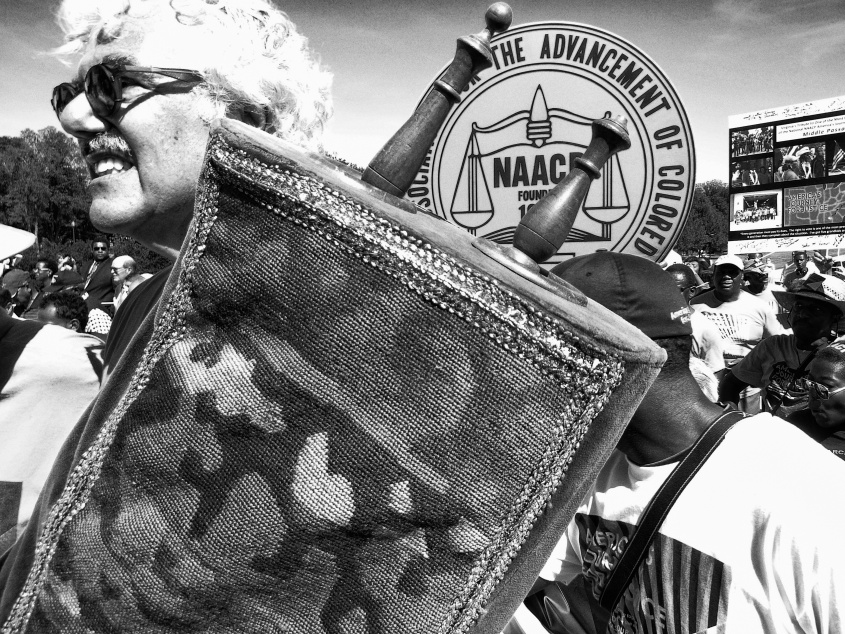
Carrying the Torah, Washington D.C., 2015
They entered D.C. with a twenty-pound Torah that had been passed from marcher to marcher along the 1,000-mile journey. Over 200 Rabbis flew in, one at a time, to one city after another, in order to carry the holy symbol along the entire way.
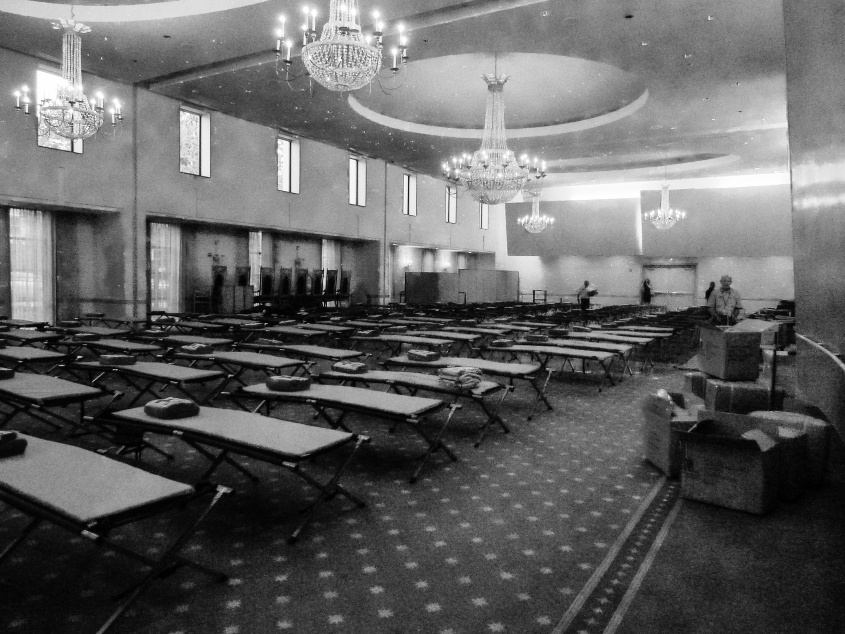
A Resting Place, Washington D.C., 2015
Cots were set up for the marchers when they completed the rally at the Lincoln Memorial. The Washington Hebrew Congregation hosted, and provided food and shelter.
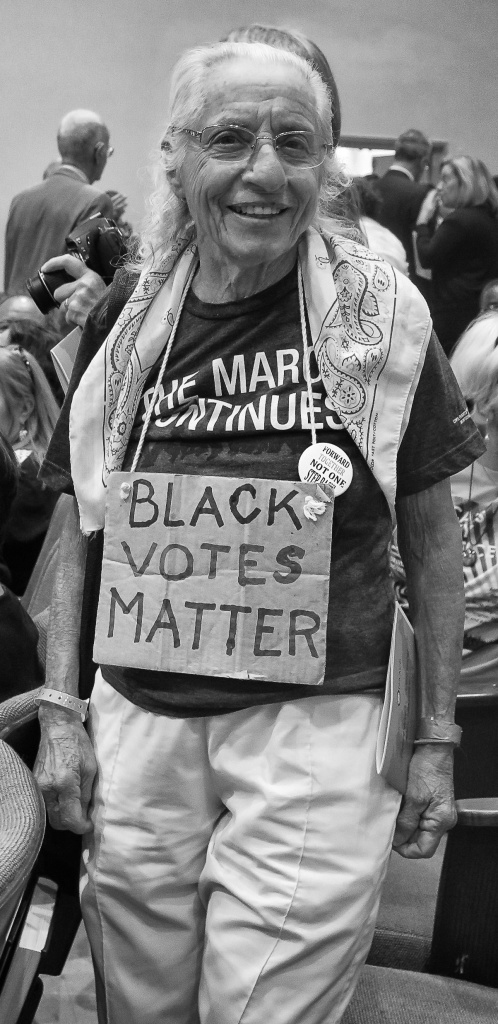
Black Votes Matter, Washington D.C., 2015
Ruth Zalph, pictured at the Washington Hebrew Congregation, marched from her home in North Carolina to D.C., and represented the group, the Raging Grannies.
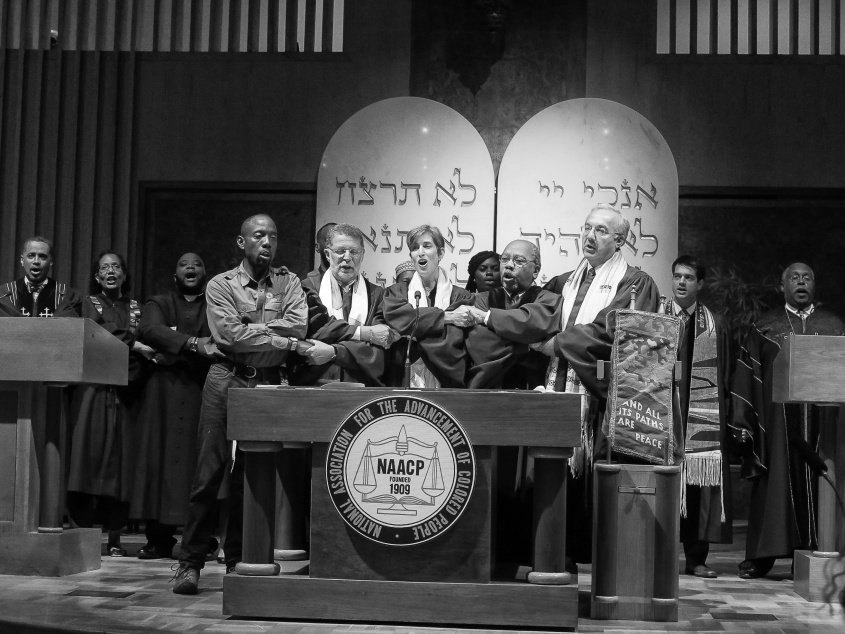
In Solidarity, Washington, D.C., 2015
After their stop at the Lincoln Memorial, many of the marchers joined in an Interfaith Service at the Washington Hebrew Congregation. It was a diverse group, from many faiths and ethnicities, with atheists and agnostics in attendance, as well.
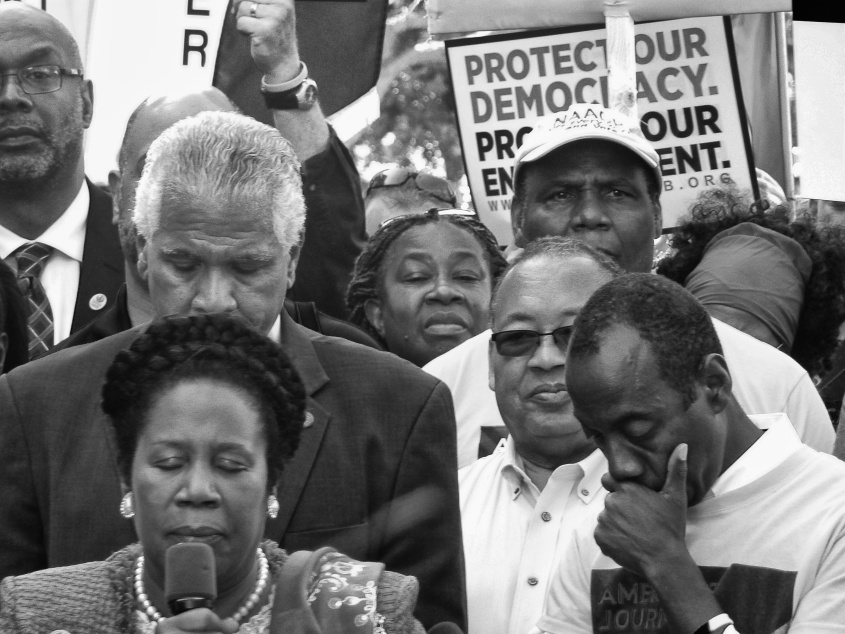
A Moment of Silence, Senate Lawn. Washington D.C., 2015
After the rally at the Lincoln Memorial, and service at the Temple, the next day, marchers gathered on the Senate lawn. There was a moment of silent prayer, led by Representative Sheila Jackson Lee, for a naval veteran and marcher who had died along the Journey. His name was Middle Passage, a name he took to honor those who were stolen, taken into slavery, and shipped to the Northern Hemisphere over a route called the “Middle Passage.”
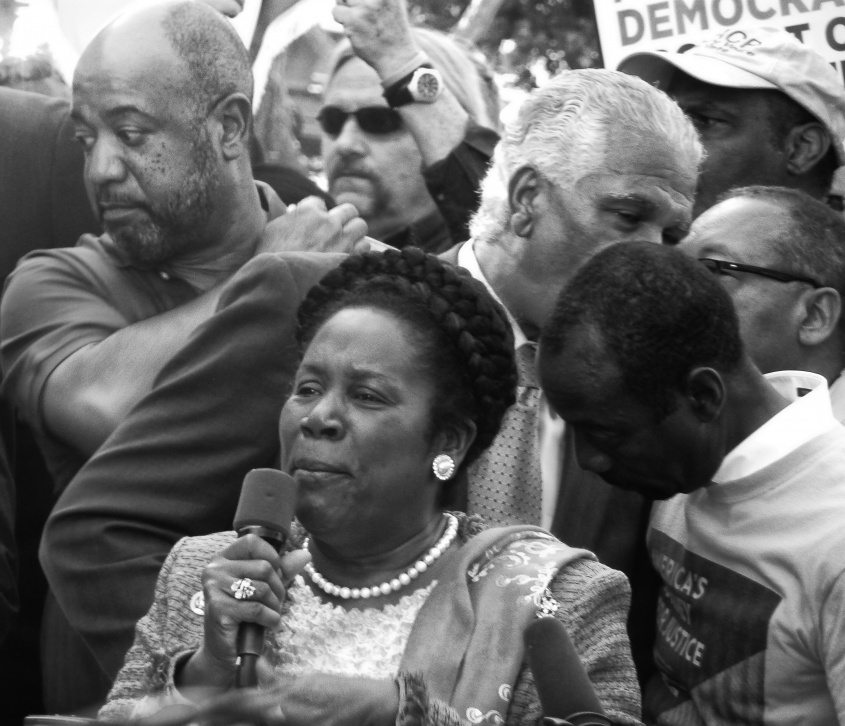
Representative Sheila Jackson Lee, Senate Lawn, Washington D.C., 2015
After addressing the crowd, the Representative steered them to the Congress where, later in the day, marchers spoke to legislators about the injustice of voter suppression and income inequality. They also called for an end to deadly, racial violence, and urged that new voter protection laws be passed.
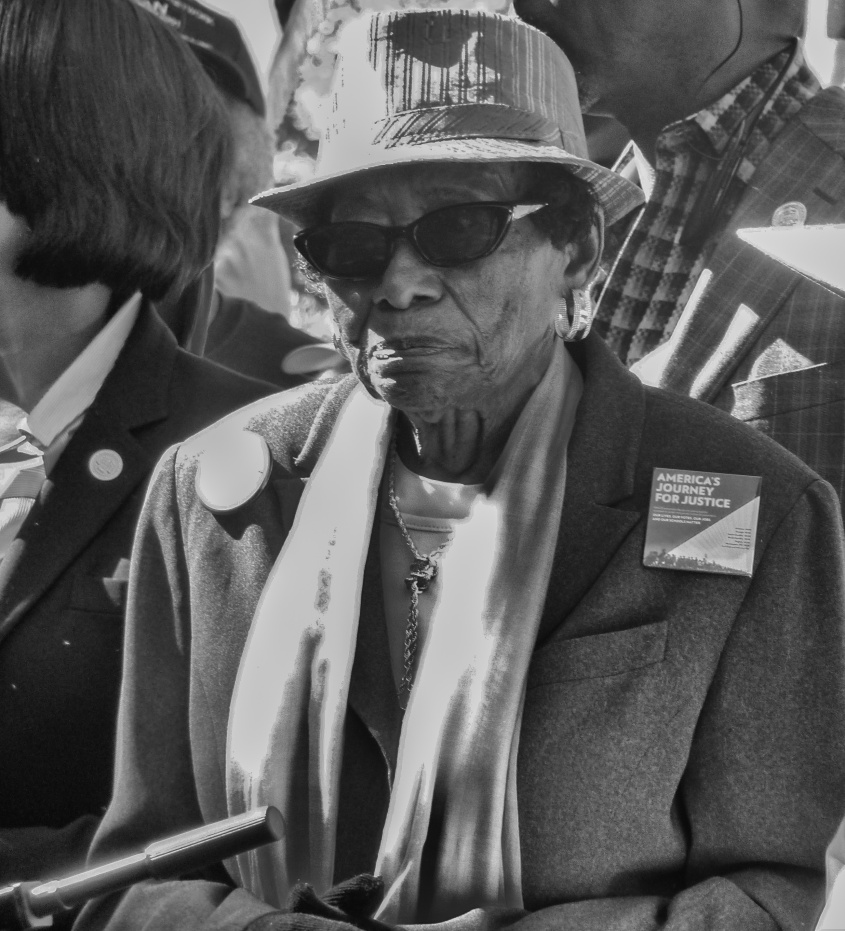
Rosanell Eaton, Senate Lawn, Washington, D.C., 2015
Rosanell Eaton was the 95-year old plaintiff in a case challenging North Carolina’s voter suppression.

